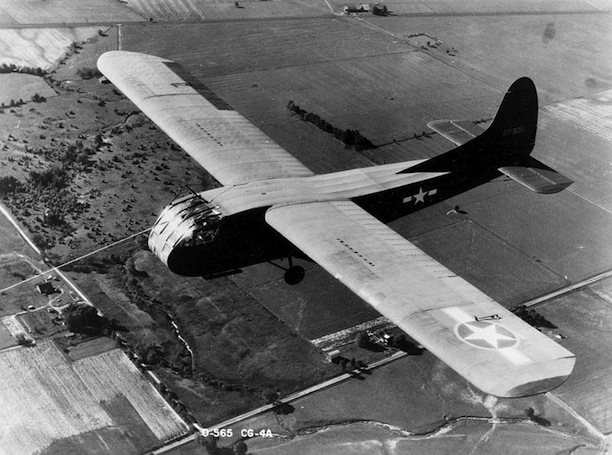By Gregg Mangan
Rollin Booth Fowler was a native of Bethany who served his country in remarkable fashion during times of war. A glider pilot who took part in both the Normandy and Holland invasions in World War II, Fowler also served as a personal bodyguard for General Dwight Eisenhower and Prime Minister Winston Churchill during their pre-Normandy-invasion troop inspections in Newbury, England. Captured and made a prisoner of war after crash landing in Normandy, Fowler made a remarkable escape and became a celebrity in his Connecticut hometown.
Fowler Joins the War Effort
After graduating high school in 1940, Fowler went to work for Duo-Therm Air Distribution in West Haven. Shortly after his 18th birthday, and the Japanese attack on Pearl Harbor, Fowler enlisted in the army. He spent a year in the field artillery before transferring to the air corps where he volunteered for glider service. His glider training soon took him to Aberdeen, South Dakota, where he met and married his wife, Barbara.
On June 6, 1944, with his wife at home nursing their month-old son, Fowler took part in the invasion of Normandy. Like so many gliders loaded with men and supplies, Fowler’s plane crash-landed on the Normandy coast. Emerging safely from his glider, Fowler soon found himself in the thick of the fight, killing five enemy soldiers with hand grenades and four more with a rifle before the explosion of an enemy grenade knocked him unconscious. When he awoke, he was a prisoner of war.
From Prisoner to Escapee
The Germans transported Fowler to one of their regimental headquarters just as US Thunderbolt and Lightning fighter planes began attacking out of the sky. Under a hail of fire, a German colonel drove up in a staff car and came to a stop near Fowler. Months later, the glider pilot remembered coveting a pair of binoculars the colonel possessed and formulating a plan to seize upon the chaos of the attack, steal the binoculars, and make his escape.
Fowler found that the soldier who searched him for weapons upon his capture overlooked a hand grenade that Fowler still had in his possession. Throwing the grenade in the direction of the staff car, Fowler killed the colonel and another soldier. He then quickly grabbed the colonel’s binoculars and a carbine and ran down the road where he procured a German motorcycle and used it to race back to the Allied lines.
Back Home and a Hero
Fowler’s exploits made him a hero in Bethany and earned him a promotion from flight officer to second lieutenant. His unit, the 435th Troop Carrier Group, won the Presidential Unit Citation for its performance in Normandy.
After serving out the remainder of World War II in the air corps, and serving again in the Korean War, Fowler returned to Connecticut, eventually becoming a resident of Unionville. He passed away at John Dempsey Hospital in Farmington in 1987 at the age of 64.
Gregg Mangan is an author and historian who holds a PhD in public history from Arizona State University.









